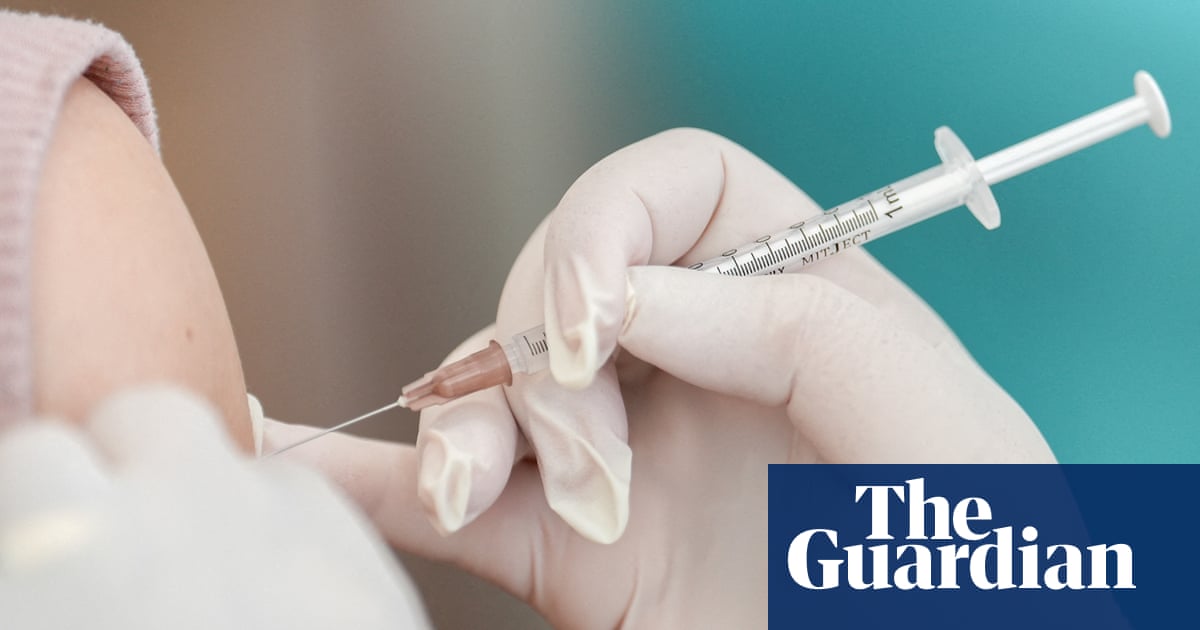The Food and Drug Administration (FDA) announced on Tuesday that it will limit access to seasonal Covid-19 boosters for healthy Americans under 65 without clear evidence of clinical benefit – a shift, critics say, will make it difficult for people who are not high-risk but want to be vaccinated against the disease.
Top officials at the FDA outlined a new framework for approving Covid-19 vaccines, saying that the US would make the boosters available for Americans over the age of 65 and for adults and children above the age of 6 months with at least one condition that increases their risk of severe Covid-19.
Newly-installed FDA commissioner, Marty Makary, andVinay Prasad, the controversial director of the Center for Biologics Evaluation and Research, laid out the new guidelines in a commentary piece published in theNew England Journal of Medicine.
They wrote that manufacturers would have to conduct randomized, controlled clinical trials before updated vaccines would receive approval for healthier people.
Elsewhere in the piece, the officials argue that the US is an outlier among countries in Europe and other high-income countries where Covid-19 boosters are recommended only for older adults and people at high risk. They estimate that more than 100 million Americans will still qualify for the annual shots under the new terms.
The US Centers for Disease Control and Prevention lists manyconditionsthat make a person higher-risk for getting very sick from Covid, including obesity, diabetes, asthma or chronic lung disease as well as those with a compromised immune system, pregnant people and people with disabilities.
Makary, appointed by Donald Trump, and Prasad are both vocal critics of pandemic-era policies and of the government’s response to Covid-19. The agency is overseen by the Health and Human Services, which is now run byRobert F Kennedy Jr, a long-time vaccine skeptic who has been slashing the department as part of the White House’s effort to downsize the federal government.
“Although the rapid development of multiple Covid-19 vaccines in 2020 represents a major scientific, medical, and regulatory accomplishment, the benefit of repeat dosing – particularly among low-risk persons who may have previously received multiple doses of Covid-19 vaccines, had multiple Covid-19 infections, or both – is uncertain,” Makary and Prasad wrote.
“The American people, along with many health care providers, remain unconvinced.”
The American universal access policy, they contend, was based on the assumption that “the American people are not sophisticated enough to understand age- and risk-based recommendations” – a view they say the agency now explicitly rejects.
Since becoming the country’s top health official in February, Kennedy has filled the FDA and other health agencies with outspoken critics of the government’s handling of Covid shots, including Makary and Prasad. Under federal procedures, the FDA releases new guidance in draft form and allows the public to comment before finalizing its plans. The publication of Tuesday’s policy in a medical journal is highly unusual and could run afoul of federal procedures, according to FDA experts.
Health experts say there are legitimate questions about how much everyone still benefits from yearly Covid vaccination or whether they should be recommended only for people at increased risk.
Prior to this announcement, the FDA had hinted that changes were coming. Last week, the agency granted approval of Novavax’s Covid-19 vaccine but with restrictions that reflect its new guidelines.
Sign up toThis Week in Trumpland
A deep dive into the policies, controversies and oddities surrounding the Trump administration
after newsletter promotion
Makary and Prasad said they expect the FDA will approve the boosters for adults over the age of 65 years “on the basis of immunogenicity” – whether the vaccine produces a robust antibody response. But for lower-risk groups, the FDA will now require what the authors describe as “robust, gold-standard data” from drugmakers before approval is granted.
Critics say the new guidelines will limit access for people who want the booster, including parents and their children. And some experts have raised questions about how the new framework will be applied.
“Is the pharmacist going to determine if you’re in a high-risk group?” asked Dr Paul Offit, a vaccine expert at Children’s Hospital of Philadelphiatoldthe Associated Press. “The only thing that can come of this will make vaccines less insurable and less available.”
In June, an influential panel of advisers to the CDC is scheduled to debate which vaccines should be recommended to which groups.
The FDA’s announcement appears to usurp that advisory panel’s job, Offit said. He added that CDC studies have made clear that booster doses do offer protection against mild to moderate illness for four to six months after the shot even in healthy people.
Provisional data from the Centers for Disease Control and Prevention shows more than 47,000 Americans died from Covidrelated causes last year. The virus was the underlying cause for two-thirds of those and it was a contributing factor for the rest. Among them were 231 children whose deaths were deemed Covid-related, 134 of them where the virus was the direct cause – numbers similar to yearly pediatric deaths from the flu.
